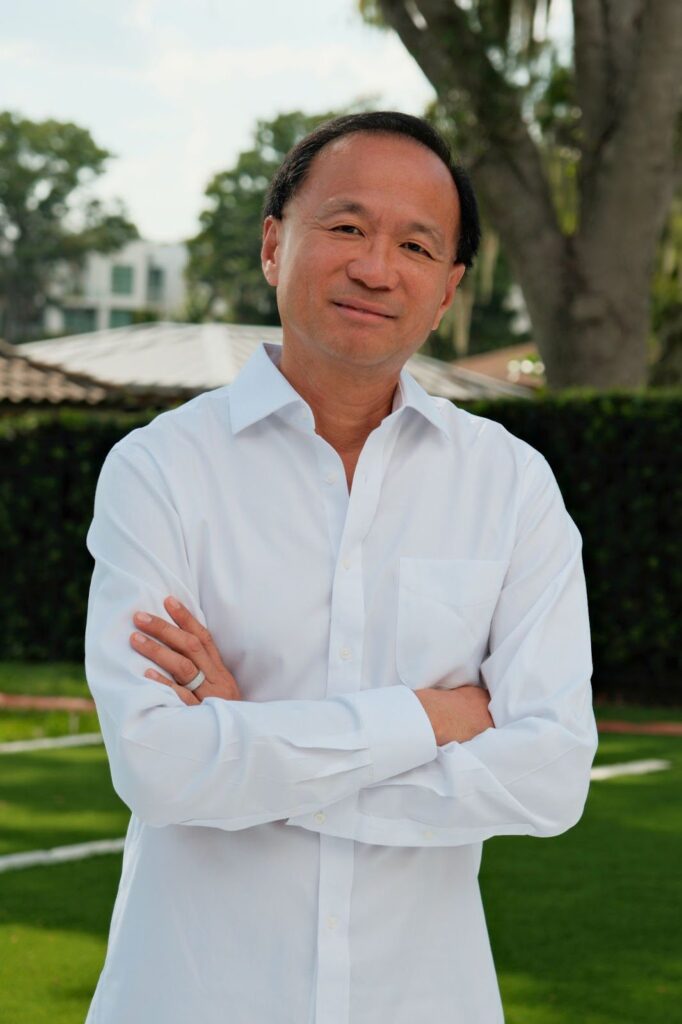For nearly two decades, Seeking.com has carved out a unique space in the online dating landscape. Known for challenging conventional relationship norms, it has attracted a diverse community looking for clarity and honesty in modern dating. Now, under the vision of its founder, the site has undergone a bold transformation, one that’s reshaping its identity and redefining what intentional, values-driven connections look like in today’s world.
Brandon Wade, a self-described “shy nerd” with degrees from MIT, launched Seeking.com in 2006 not to provoke, but to solve a personal problem.
“I launched Seeking.com because I was struggling with dating,” Wade says. “I may have earned my bachelor’s and MBA from MIT, but I’ve never been the kind of guy who stands out for his looks.”
Traditional dating platforms, Wade felt, favored appearance over ambition. Despite his success, he was getting nowhere. A comment from his mother, that “women love successful men,” stuck with him. So he built a site that flipped the script: a place where achievement, not aesthetics, could take center stage.
“I created Seeking.com for successful men like me,” Wade says. “Men who may not win in the superficial dating world, but who’ve worked hard, built something of value, and now want romance.”
That vision quickly caught on. From the beginning, Seeking.com attracted more women than men, at one point by a ratio of four to one. It offered a candid promise: clarity, honesty, and lifestyle compatibility. But as the site grew, its identity began to drift. Over time, the site became synonymous with the idea of “sugar dating,” despite never branding itself that way. At one point, Wade convinced himself that if he couldn’t find someone to love him for who he was, maybe he could find fulfillment.
“In solving my own dating challenges, I created a platform that made it easy to indulge in abundance,” Wade reflects. “And when abundance is misused, it becomes indulgence.”
Then everything changed in 2020 when he met Dana Rosewall on Seeking.com.
Their relationship, Wade says, wasn’t transactional. It was transformational. They married in 2022, waived their rights to divorce, and now co-lead the company.
“She saw me, not for what I had, but for who I truly am,” Wade says. “That experience forced me to reflect: indulgence may offer pleasure, but it never delivers lasting happiness.”
That clarity sparked a full-scale pivot. Seeking.com began removing all forms of transactional dating. The company reoriented itself around what Wade calls intentional love, a model focused on values, purpose, and emotional alignment.
“We no longer permit transactional dating of any kind,” Wade says. “Our goal is to help members build intentional, successful relationships based on shared values, not financial arrangements.”
Intentionality isn’t just a buzzword. It’s baked into how the site now operates. Users are prompted to lead with values rather than income or looks. Features prioritize emotional maturity, purpose, and lifestyle compatibility. Stricter moderation and verification protocols are in place to filter out scammers and disingenuous profiles.
The shift, Wade insists, is not just a brand strategy. It’s a personal responsibility.
“After our marriage, Dana and I came to a powerful realization: we could no longer, in good conscience, run a platform that profits from people’s confusion, temptations, or misplaced desires,” he says. “Not when we’ve lived the truth of what real love looks like.”
That truth is deeply embedded in their vision for Seeking.com’s future as a space where love is not an accident but a conscious choice.
“We believe success in love requires the same mindset that leads to success in life: being intentional about who you are, what you want, and how you show up.”
The couple’s leadership also influences how Seeking.com frames relationships. Rather than promoting a one-size-fits-all ideal, the site embraces a structure Wade calls “complementary hypergamy,” a dynamic where partners bring different but mutually respected forms of value to the relationship.
“It’s not about inequality. It’s about alignment,” Wade explains. “When both people bring something meaningful to the table… that’s where true synergy happens.”
In their case, that means bridging generational and experiential gaps with a shared vision. “We don’t mirror each other. We complement one another,” Wade says.
For a site long defined by provocation, Seeking.com now positions itself as a kind of antidote to modern dating fatigue. Wade points to Gen Z, in particular, as disillusioned with endless swiping and shallow connections.
“We’re seeing an entire generation giving up on dating altogether. Not because they don’t want love, but because they’re exhausted by the emptiness of it all,” he says.
What Seeking.com offers now is a return to depth and a move toward clarity. Wade hopes the site will become known not for controversy, but for restoring a sense of direction in how people find and build intentional relationships.
“We want to reintroduce the idea that love is not just a feeling. It’s a commitment. A decision,” he says.
Seeking.com is still, in many ways, a bold site. But the boldness now lies in what it’s rejecting: superficiality, indulgence, confusion. And in what it’s embracing: shared values, emotional intelligence, long-term partnership.
“Just like people, platforms can change,” Wade says. “And today, Seeking.com is here to help people find what we found: real love, built on something real.”
Spencer Hulse is the Editorial Director at Grit Daily. He is responsible for overseeing other editors and writers, day-to-day operations, and covering breaking news.

